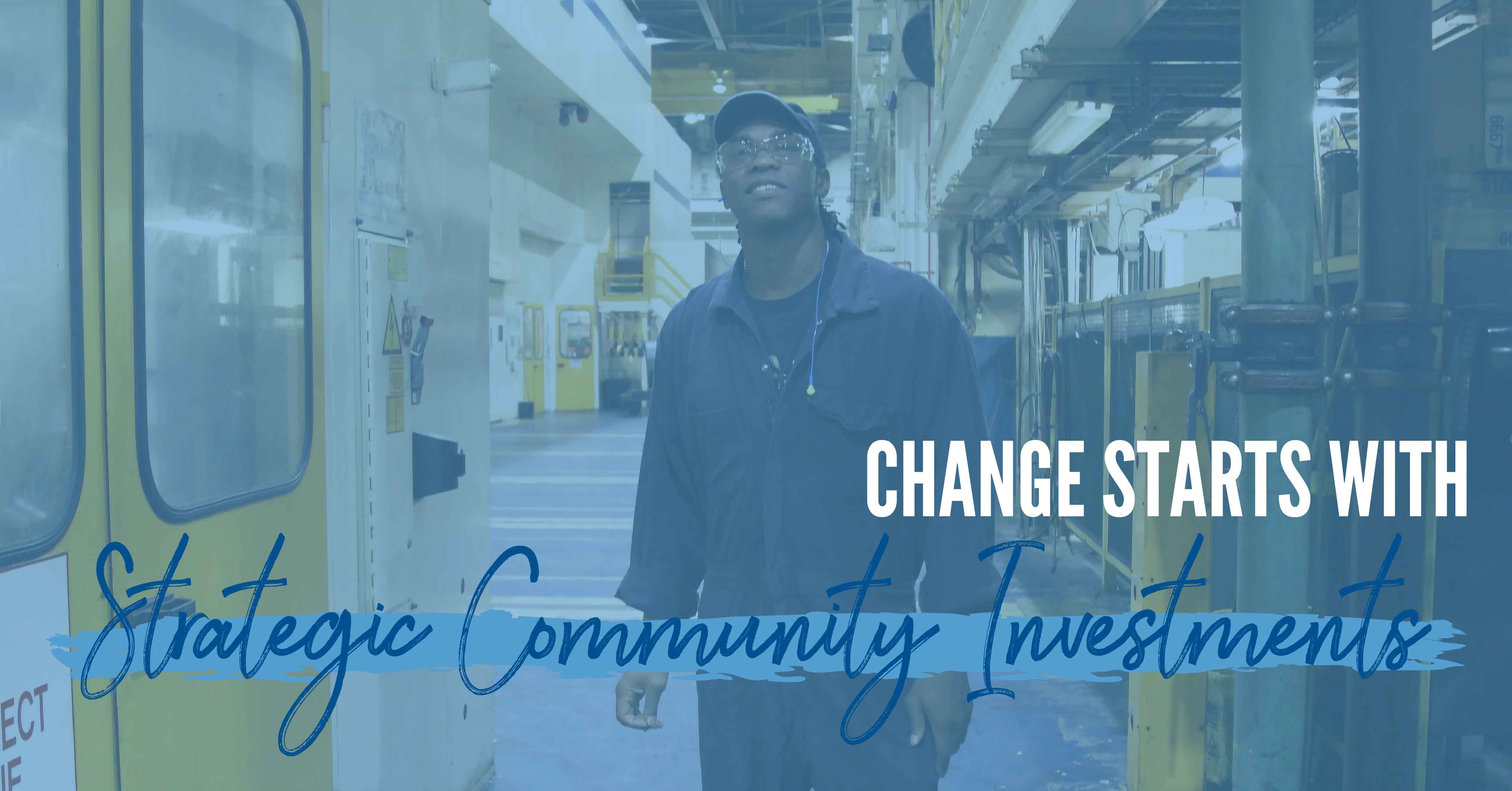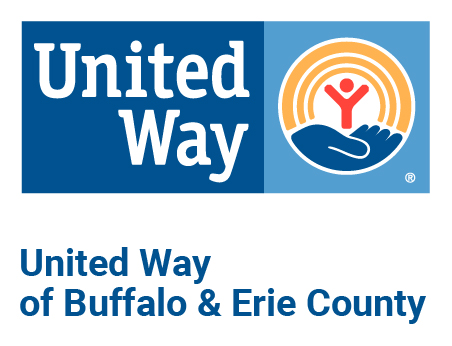Employment and Workforce Development

Employment & Workforce Development
Goal: To reduce barriers and connect people who are unemployed and underemployed in Erie County with good paying stable jobs.
Over 40% of families in Erie County experience financial hardship. In many of these families, at least one member is looking for work or working in a job that does not pay a living wage. While 14% of families who experience financial hardship are living in poverty, many others earn an income above the federal poverty level but still cannot afford a household survival budget. This second population is known as the ALICE population. ALICE stands for Asset Limited Income Constrained Employed. Over 25% of Erie County families fall into the ALICE category. Additionally, financial hardship is not experienced equally in our community, people of color are disproportionately likely to struggle. 68% of Black and Hispanic families in our community and 52% of Asian families are experiencing financial hardship. This is all compared to the 36% of White families that experience the same. Women, veterans, immigrants, refugees, disabled persons, seniors, and members of the LGBTQ+ community are also at increased risk of experiencing financial hardship. While there are many families experiencing financial hardship we also know that there are many unfilled jobs in our region and we are anticipating a significant number of jobs will become available over the next decade due to worker retirement, and the economic resurgence our area was experiencing pre-COVID.
So if there are jobs available why are some families still struggling?
One reason is that lower-wage jobs dominate the WNY Economy, between 2010 and 2017 the Buffalo-Niagara region lost 6,000 middle-wage jobs ($30,000-$60,000 annually), while simultaneously adding 17,000 lower-wage jobs (less than $30,000 annually) and 11,000 higher-wage jobs ($60,000+). Those who previously held middle-wage jobs often do not have the technical skills required to take on one of the higher-wage jobs that have been added to our local economy, this is what's known as a skills gap. Middle-wage workers were then left with a couple of options if they were of age, and had the appropriate savings they could choose to retire, 25% of WNY’s workforce is at or approaching traditional retirement age. It is predicted that about 137,000 jobs in WNY will become available within 10 years due to retirements. If they were not able to retire they could take higher-education courses or vocational training that would help them get the skills needed for one of the new higher-wage jobs, this is often referred to as upskilling. However, upskilling can often be cost prohibitive to many people who have limited savings and a family to support. Their other option is to take one (or more) of the newly added low-wage jobs that they are likely overqualified for. Over 132,000 workers in the Buffalo-Niagara region are considered underemployed. Underemployment involves workers whose skills, education and training exceed the work they are currently doing. So those former middle-wage workers who are now taking low-wage jobs are considered underemployed.
Employment is not the only thing that causes families to experience financial hardship. Families with children suffer from the high cost of child care, and those who experience financial hardship are also disproportionately likely to experience housing burden (when you spend more than 30% of your income on housing costs) all of this coupled with low financial literacy can also contribute to a family experiencing financial hardship.
United Way of Buffalo & Erie County is committed to breaking the cycle of financial hardship that affects over 40% of Erie County families. We have chosen to do this in a variety of ways, one of which is to invest in local nonprofits that are working to assist those who are unemployed or underemployed with resources that will help them upskill in order to secure good paying stable jobs. Recently we invested over $350,000 into local programs like this. These programs work with adults to help close the technical skills gap or to develop “soft skills” like leadership and interpersonal communication that are in high demand. They also work with children and young adults to ensure that they are ready to enter the job market once they finish school.
One of these programs is the Goodskills Career Builder Long Term Employment Support program. This program works with families living in poverty, the ALICE population, those who are unemployed or underemployed and specifically looks for individuals who have significant risk factors for experiencing financial hardship. The Buffalo-Niagara region added over 10,500 jobs in Manufacturing, Tech, and Sales & Service between March 2020 and March 2021. The Goodskills program provides upskilling opportunities and long term career coaching support for program graduates pursuing all three targeted industries. Participants are led through a 4-week long job readiness training program that teaches participants soft skills and gives them on-the-job experience. As part of the training, all participants receive certificates in basic computer skills, internet and email. Depending on the focus area participants are pursuing they receive additional specialized training certificates, for example, those pursuing Tech jobs can complete Cybersecurity Certification, and those pursuing manufacturing can receive their OSHA-10 and Forklift certifications. In the final two weeks of their program, participants have split workdays the first half of their day is soft-skills training (relationship management, financial literacy, problem solving, teamwork, etc.) the second half of their day is working on the manufacturing floor doing contract work, or in the technology lab completing work for Fisher-Price Mattel. After participants graduate from Goodskills Career Builder they are invited to an on-site job fair with local employers who have immediate hiring needs, the goal being to get graduates hired on the spot or set up with a second interview. Participants are provided with support from Career Coaches for up to three years following graduation.
The work of United Way of Buffalo & Erie County and our partner agencies is critical to helping reduce barriers for unemployed and underemployed members of our community. Please consider supporting the United Way of Buffalo & Erie County’s annual campaign so that we can continue to do this vital work. As little as $2 a week will provide a uniform or basic protective gear to a new worker. Meaningful change in our community starts with people like you choosing to make a difference. Make your pledge to the UWBEC annual campaign here uwbec.org/give
If you are interested in learning more about the funded agencies and the ways in which general campaign funds make a positive change in our community visit www.uwbec.org/impact
